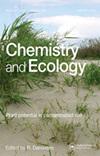Integrated multi-biomarker responses in Mozambique tilapia, Oreochromis mossambicus under acute and chronic Diazinon® exposures
IF 1.8
4区 环境科学与生态学
Q3 ECOLOGY
引用次数: 10
Abstract
ABSTRACT The pesticide ecosystem impacts are very diverse, and depending on their persistence could exert their intrinsic toxicity within an acute to a chronic timeframe. This study examined the toxic effects of Diazinon on haematological and biochemical endpoints in Oreochromis mossambicus after chronic exposure. After a prior range fining test, fishes were exposed to predetermined diazinon concentrations (T1-0.906 mg/L) and (T2-1.812 mg/L) and sampled after 28 days for toxicity endpoints. In Diazinon-exposed fish, haemoglobin content, Total Red Blood Cells, Total White Blood Cells, and MCH levels were substantially lower (p < 0.05) than in the control fish group. The total blood glucose concentrations in treated fish were substantially greater (p < 0.05) than in the control group, whereas serum protein concentrations were significantly lower (p < 0.05). Observation for most biomarkers revealed patterns of decreasing values with increasing toxicant concentration and exposure duration. The integrated indices (IBR and BRI) indexes were used to provide visual and understandable depictions of toxicity effects and emphasised the relativity of biomarkers in terms of sensitivity and magnitude or severity of responses under graded toxicant exposures. In acute and chronic diazinon exposure circumstances, the analysed metrics show significant impairment to Oreochromis mossambicus.急性和慢性暴露于Diazinon®的莫桑比克罗非鱼、莫桑比克罗非鱼的综合多生物标志物反应
农药对生态系统的影响是非常多样化的,并且根据其持久性可以在急性到慢性时间框架内发挥其内在毒性。本研究探讨了二嗪农对慢性暴露后的刺青鱼血液学和生化指标的毒性作用。在预先的范围筛选测试后,将鱼暴露于预先确定的二嗪磷浓度(T1-0.906 mg/L)和(T2-1.812 mg/L)中,并在28天后取样检测毒性终点。与对照组相比,二氮嗪农暴露鱼的血红蛋白含量、总红细胞、总白细胞和MCH水平显著降低(p < 0.05)。处理鱼的总血糖浓度显著高于对照组(p < 0.05),血清蛋白浓度显著低于对照组(p < 0.05)。对大多数生物标志物的观察显示,随着毒物浓度和暴露时间的增加,其值呈下降趋势。综合指数(IBR和BRI)指数用于提供可视化和可理解的毒性效应描述,并强调生物标志物在分级毒物暴露下的敏感性和反应的大小或严重程度方面的相关性。在急性和慢性二嗪农暴露的情况下,分析的指标显示显着的损害莫桑褐条。
本文章由计算机程序翻译,如有差异,请以英文原文为准。
求助全文
约1分钟内获得全文
求助全文
来源期刊

Chemistry and Ecology
环境科学-环境科学
CiteScore
4.20
自引率
16.00%
发文量
58
审稿时长
3.7 months
期刊介绍:
Chemistry and Ecology publishes original articles, short notes and occasional reviews on the relationship between chemistry and ecological processes. This journal reflects how chemical form and state, as well as other basic properties, are critical in their influence on biological systems and that understanding of the routes and dynamics of the transfer of materials through atmospheric, terrestrial and aquatic systems, and the associated effects, calls for an integrated treatment. Chemistry and Ecology will help promote the ecological assessment of a changing chemical environment and in the development of a better understanding of ecological functions.
 求助内容:
求助内容: 应助结果提醒方式:
应助结果提醒方式:


